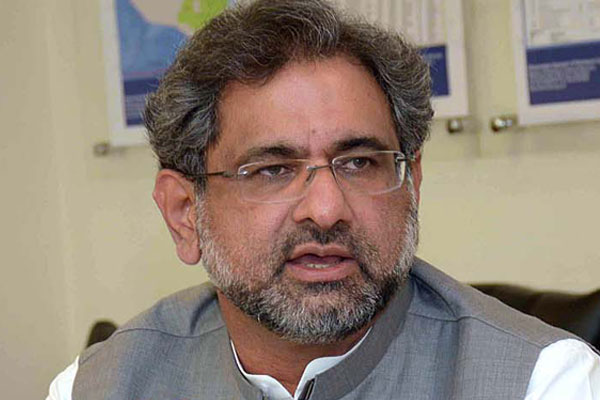ISLAMABAD: Prime Minister Shahid Khaqan Abbasi while speaking at the Pakistan Economic Forum in Islamabad on Wednesday said that the government is working on a multipronged strategy to reform country’s tax structure.
He informed that the government has planned to lower tax slabs for individual taxpayers and added that minimum threshold of taxable income will also be increased.
He said that the government is planning to increase the tax net through technology.
“The concerned authorities like Federal Board of Revenue (FBR) should use CNIC for tracing all individuals involved in various kinds of transactions including banking, utility services and buying and selling activities. Notices should be issued to these people through the use of technology with the cooperation of NADRA,” he further commented.
He also said that the government will soon announce a one-time tax amnesty scheme.
The prime minister also stressed upon the importance of enhancing tax collection and increasing exports. “We gave an incentive package to the exporters but more needs to be done to make our industries competitive,” he said.
While talking about the improved security situation and power generation in the country, he said that, “Over the last four and a half years, overall law and order situation has improved to a great extent due to the sacrifices rendered by security forces of the country and despite political instability and turmoil, the energy crisis has been resolved.”
The prime minister was confident that special economic zones under the China-Pakistan Economic Corridor project will generate economic activities in the country.
Meanwhile, talking to PML-N office bearers from tribal agencies, the prime minister assured them that the government will work towards solving the problems of tribal people and directed them to carry out the FATA reforms in a phased manner.
Earlier addressing the forum, Dr Ishrat Hussain, former Governor State Bank said that the policy of holding tax refunds was not a wise step on the part of FBR as the process hurts exporters. “Since increasing exports is the only major way out of the current deficits, the government should extend maximum facilities to exporters,” he added.
Though the increase of 12 per cent in exports is encouraging, it could further go up in case the government and private sector do joint efforts. “I suggest Prime Minister of Pakistan to hold a meeting with economic managers every month,” said Hussain.
Talking about opportunities under CPEC, Dr Isharat said that Pakistani firms can only benefit from the corridor if they go for joint ventures with Chinese companies.
Gul Ahmed Textile Chairman Bashir Ali Muhammad said that despite the door of opportunities opened in Europe through the GSP Plus facility, Pakistan could not avail maximum benefits from the tariff concessions. He said exporters were also deprived of due benefits due to the control on currency during the past four years. He suggested the government to avoid making short-term economic policies.
While addressing the forum Shabbar Zaidi, a tax expert, said that Pakistan desperately needs to reduce its dependence on indirect taxation and added that the issues related to taxation will not be resolved as long as the government continues collecting 74 percent of taxes indirectly
He said that there is burden of taxes on manufacturing sector which needs to be reduced. Talking about increasing imports, he said, though imports increase the collection of tax by FBR as a whole the economy faces losses.
Ali Habib of Habib Group, while talking on the occasion said that under-invoicing has become the norm in Pakistan as even importers interested in fair play are forced to indulge in this practice.
He also said that manufacturing sector was bearing a huge burden of tax in the country which hampers growth in the sector.
























